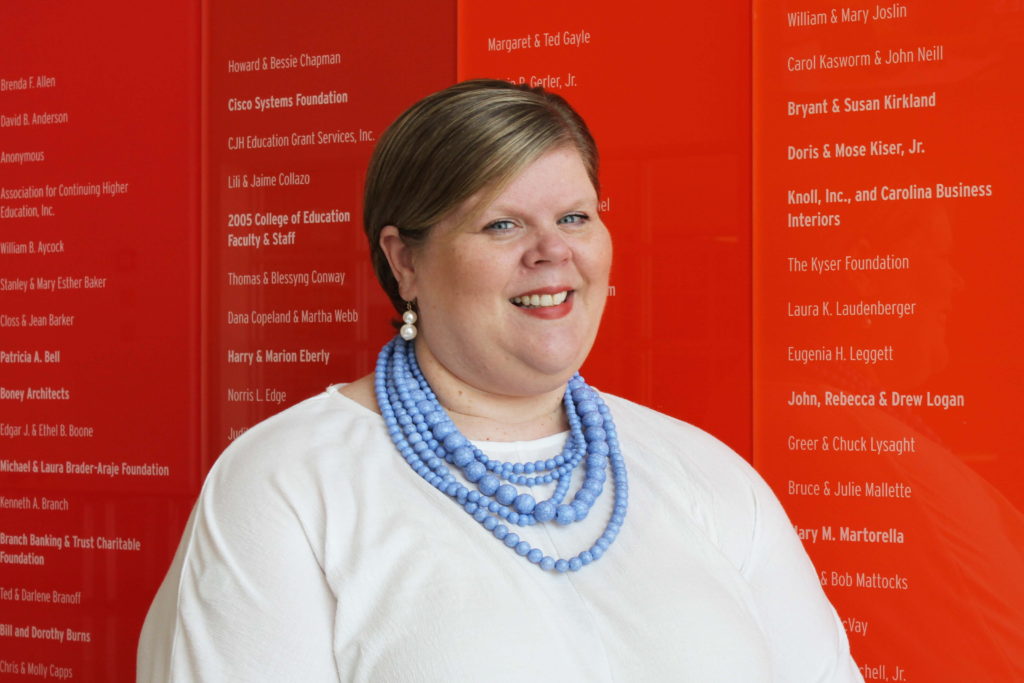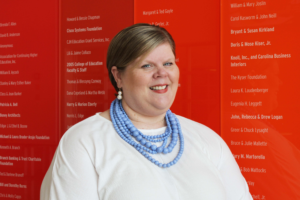How did you get started in doing work in emerging technologies for teaching and learning?
Back in 2005, I was working as a graduate research assistant and supporting a project focused on convening teachers virtually to talk about key issues facing education. We first used a platform called Elluminate (which was later bought by Blackboard) to host interactive webinars. I was amazed to see how well educators from across the country could collaborate using this platform. It sparked my long-time interest and passion for using emerging technologies. Today, I serve as the Director of Professional Learning and Leading at the Friday Institute for Educational Innovation where we are constantly looking for ways to improve teaching and learning for students and teachers alike, particularly using new tech tools and platforms. The Friday Institute was ahead of the curve nine years ago when we introduced Massive Open Online Courses for Educators (MOOC-Eds) and we continue to strive to stay on top of innovation for teaching and learning.
Do you think more about technology innovation or improving understanding of learning? How do you balance the thinking?
This is a great question and quite the paradox! I think more about improving learning so I guess the understanding of it would be included as well. The more we know and can understand about how we learn and what will help us learn better, the more innovative technology we can create. Technology should always be developed with the end user in mind; therefore, we must first understand what problems it can address. Being part of CIRCLS allows me to learn from others in the community and the insights they can share from their own areas of expertise and research interests. I recently served on the Program Committee for the CIRCLS’21 Convening.
How have you attended to equity-related issues within your project? Please discuss actions taken.
Attention to equity is critical to the success of all projects. In the work that I do, I consider equity when it comes to project planning — who is involved as staff, who we engage with as partners, and who is the audience we serve. Furthermore, I work to serve as a role model, identifying my own biases and working to unpack them. I constantly look for others who can push my thinking, which is why I loved the opportunity to hear from Dr. Nicki Washington, who gave one of the keynotes at the CIRCLS’21 convening. She is not only a brilliant scholar in computer science education, but also an authentic individual who makes me critically reflect on my own practice and behaviors.


